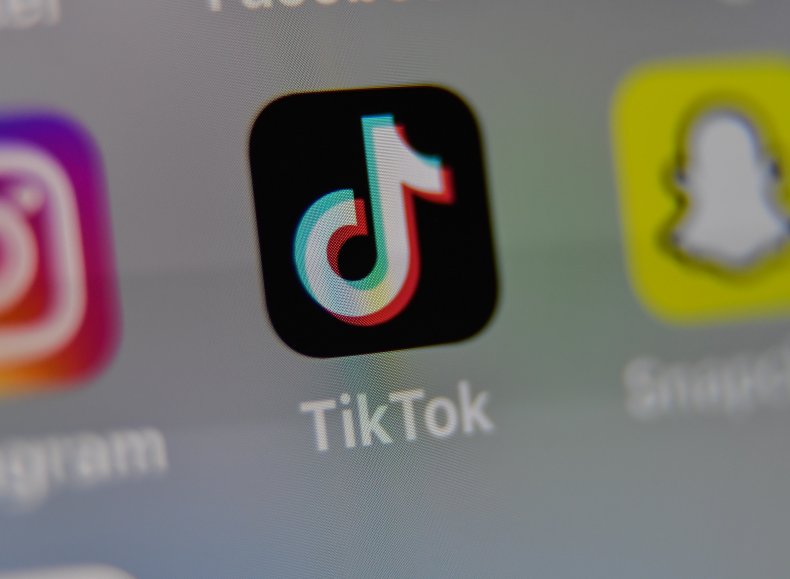TikTok Pyramid Scheme Ban Draws Cheers From Anti-Multi-Level Marketing Groups - Newsweek
TikTok is known for being ahead of pop culture, and recent updates to its terms of use might also be putting it ahead of legislation. The app made waves on Tuesday when it announced a policy banning content that "depicts or promotes Ponzi, multi-level marketing, or pyramid schemes." TikTok called the ban a means to stop users from "exploiting the platform to take advantage of the trust of users and bring about financial or personal harm."
While the rules seem fairly straightforward, some users decried TikTok's choice to lump MLMs, or multi-level marketing companies, in with other scams and schemes. However, TikTok and other major social media platforms received pats on the back from average users and members of the anti-MLM movement alike. Facebook groups, Reddit subs, YouTube channels, TikTokers and creators across the internet have announced the ban as a triumph over what they consider to be a predatory system.
The r/antiMLM Subreddit rejoiced when they heard the news, making multiple posts to its 674,000 followers applauding TikTok for the move.
"Well, this is progress," said user ShredableSending, "perhaps other social platforms will follow."
"Is there a good place to see all the huns imploding over this?" asked a commenter—hun referring to a mocking term used to address MLM targets.
Anti-MLM YouTuber Deanna Mims, who is an ex–Beach Body MLM consultant herself, also joined the discourse, posting a video on Thursday calling the ban "big news."
"I think that this really ruins credibility for MLMs, I think this is going to have a large impact with the fact that right now TikTok is one of the biggest platforms," said Mims. "There are other people who are impressionable because of their age and I feel like TikTok really recognized that."
Multi-level marketing, also called network marketing, relies on a non-salaried workforce selling a company's products in order to make a profit for said company. The participants themselves make their money largely from recruiting what is often referred to as "downlines," or other people they convince to join the company of off their recommendation. This process often entails sellers needing to purchase the products they intend to sell directly from the company in bulk and then offload enough of the stock to make a profit.
Some Facebook groups, like the more than196,000-member "Sounds like MLM but ok," are dedicated not only to users lamenting "huns" sending them recruiting messages and laughing at copy-and-pasted posts, but pointing out specifically predatory practices by the companies and sellers.
One post talked about a consultant using her recent miscarriage to sell products "in honor" of her lost baby, while another shared screenshots of a woman shilling diet products by telling people they need to lose weight.
Though companies resembling modern MLMs have been around since as early as 1932, the growing popularity of remote work in the past few years and especially since early 2020 has led to another kind of dot-com boom.
Heather Rainbow, a well-known anti-MLM TikToker with over 83,000 followers and 2.6 million video likes, says the uptick in MLM content coming across her feeds during the pandemic is what inspired her to start her account, @heathereliserainbow.
"I began to see these companies really spike in recruitment and popularity," she told Newsweek in an email. "This inspired me to start researching them and their legality, as I started to realize just how predatory and unethical they are. The stories I found were shocking."
She talked about what she called the "deceptive" nature of MLMs and, specifically, the ways in which they recruit members and report earnings. Some MLMs, like Monat, have been involved with lawsuits for faulty products or lying about the amount of money participants make. Income disclosure forms are usually available, but members are discouraged from accessing them, as the picture tends to be unflattering: On average, only 1 percent of MLM users make a profit, according to reports done by the Consumer Awareness Institute on the FTC website.
"I think the most dangerous aspect of these close pyramid scheme relatives is their recruitment tactics, coated heavily in dishonesty and stretches of the truth. MLM participants are known for portraying a fake lifestyle on social media to sell the opportunity," said Rainbow.
Though MLM salespeople already received overwhelmingly negative feedback on their posts, Rainbow was surprised by TikTok's outright ban, considering other platforms like Facebook and Instagram have done no such thing.
"This is a very bold move by TikTok, as their community guidelines are now ahead of legislation surrounding MLMs," said Rainbow, referring to the fact that MLMs are still legal while pyramid and Ponzi schemes technically are not. "Content consumers have already been reporting their recruitment videos for ages, which probably contributed to this new rule being set in stone."
She noted that MLM participants have taken to complaining about the app since Tuesday, mostly accusing TikTok of not knowing the difference between a scam and multi-level marketing and calling people in favor of the rule "ignorant."
TikTok commented on the updated policy in an email to Newsweek, saying they made the changes to be sure the community "understands what to expect on TikTok and what to report." They said the move was made to "maintain a welcoming and safe environment where authentic content can thrive."
With TikTok's anti-MLM tag sitting at 34.4 million views, the popularity of the anti-MLM movement on the internet seems to have a safe home on the app. People like Rainbow, who think the schemes are genuinely dangerous blips on the internet, are happy but they hope legislation will eventually follow.
Update: This story has been updated to include comments from TikTok.

Comments
Post a Comment